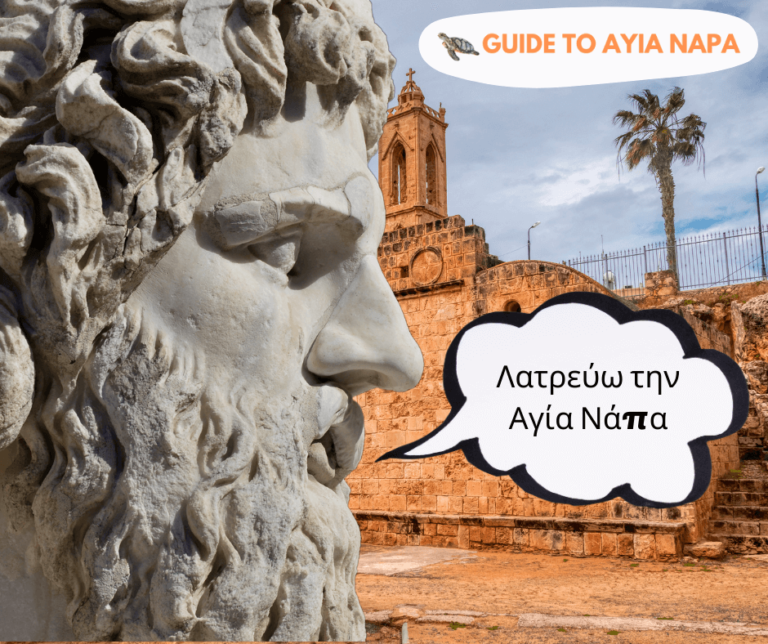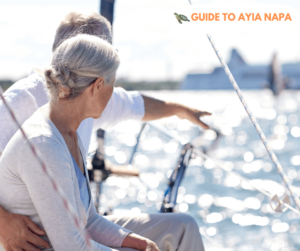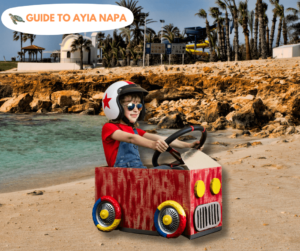If you plan a trip to Ayia Napa, you might wonder, “Do they speak English in Ayia Napa?” The short answer is: Yes, they do!
English is widely spoken throughout the resort, making it easy for tourists to communicate, get around, and enjoy their vacation.
But let’s dig a little deeper into the language scene in Ayia Napa and explore how fluent locals are, where you’ll encounter the most English, and what you might experience if you venture off the beaten path.
In this guide, we’ll walk through the different areas where you’ll find English speakers, the nuances of the local language, and why you shouldn’t worry about language barriers while on your Ayia Napa adventure.
You’ll also hear a few real-life stories to make it all more relatable, so stick around until the end!

Language in Ayia Napa: The Basics
As a major tourist hotspot, Ayia Napa has been built with international visitors in mind, and you’ll be hard-pressed to find a place where English isn’t understood.
Almost all service staff at hotels, restaurants, bars, and tourist attractions speak English fluently.
This is unsurprising, considering the number of British and other English-speaking tourists flocking to Ayia Napa yearly.
It’s not just the younger crowd either – even older locals are often well-versed in English, especially in areas that cater to tourists.
A quick personal anecdote: I was once at a taverna just outside the main square, trying to practice my Cypriot Greek (with the classic tourist enthusiasm), and the waiter smiled and said, “Don’t worry, I speak perfect English!” And just like that, my Greek lesson was over.
So, whether you’re ordering souvlaki or asking for directions to the famous Nissi Beach, English will be handy.
Where Will You Hear English in Ayia Napa?
You’ll hear English in almost every corner of Ayia Napa, especially in the town center, around the popular beaches, and near major tourist sites.
English is often the default language in most establishments.
However, as you move away from the main tourist areas, you might start hearing more Greek, and you might need to rely on some hand gestures or the universal “smile and point” method.
For example, I once stumbled upon a quiet little café on a side street.
The owner greeted me in Cypriot Greek, and I tried to respond with my limited Greek knowledge.
When he saw my struggle, he immediately switched to perfect English.
That was a friendly reminder that no matter where you go in Ayia Napa, locals are happy to help and communicate, even if it’s not always in their first language.
Cypriot Greek vs. English: What You Need to Know
The local language in Ayia Napa is Cypriot Greek, which has a distinct accent and some vocabulary differences compared to Greek spoken in Greece.
While many Cypriots speak Greek and English, it’s important to remember that Cypriot Greek might sound different than what you hear in other parts of Greece.
Still, the good news is that most locals are happy to converse in English when they realize you’re not fluent in Greek.
What About Off-the-Beaten-Path Spots?
So, you’re feeling adventurous and want to explore beyond the popular tourist spots? Don’t fret!
Even in the quieter parts of Ayia Napa or nearby villages, you’ll still find that English is commonly spoken.
Of course, learning a few key phrases in Greek can earn you a few extra smiles if you find yourself in a more rural area.
But even in these areas, English will still get you by in most situations.
Valid Greek Words to Use in Ayia Napa
While English is widely spoken in Ayia Napa, learning a few essential Greek words can make your experience feel more special.
Locals appreciate when tourists try to speak their language, even if it’s just a few words.
For instance, saying “Kalimera” (Καλημέρα) for “Good morning” or “Efharisto” (Ευχαριστώ) for “Thank you” will surely earn you some smiles.
If you’re looking to order a drink, try saying “Parakalo” (Παρακαλώ) for “Please,” and don’t forget “Yamas” (ΥΓΕΙΑΣ) when you raise your glass for a toast!
You don’t need to be fluent, but these small gestures show respect for the local culture and might even lead to a fun chat with the locals.
| Location | English Fluency | Best For |
|---|---|---|
| Main Tourist Areas (Nissi Beach, Town Center) | High | Restaurants, Bars, Attractions |
| Quiet Villages Around Ayia Napa | Moderate | Local Cafes, Shops |
| Remote, Off-the-Beaten-Path Areas | Low to Moderate | Rural Spots, Exploring Nature |
Conclusion: English Is Your Go-To Language in Ayia Napa
In short, don’t worry about language barriers in Ayia Napa.
English is widely spoken, so you’ll have no trouble communicating while you enjoy the beautiful beaches, delicious food, and exciting nightlife.
If you want to take it further and learn a few Greek phrases, know that English will always be your trusted companion in this vibrant city.
Do I need to speak Greek to get by in Ayia Napa?
No. English is widely spoken in Ayia Napa, especially in tourist areas.
Are most people in Ayia Napa fluent in English?
Yes. Most people working in tourist spots speak fluent English.
Where can I hear Greek in Ayia Napa?
While English is standard, you’ll hear Greek in quieter areas and local markets.
Can I get by with just English in remote areas around Ayia Napa?
Yes. However, learning a few basic Greek phrases in more rural locations is helpful.








